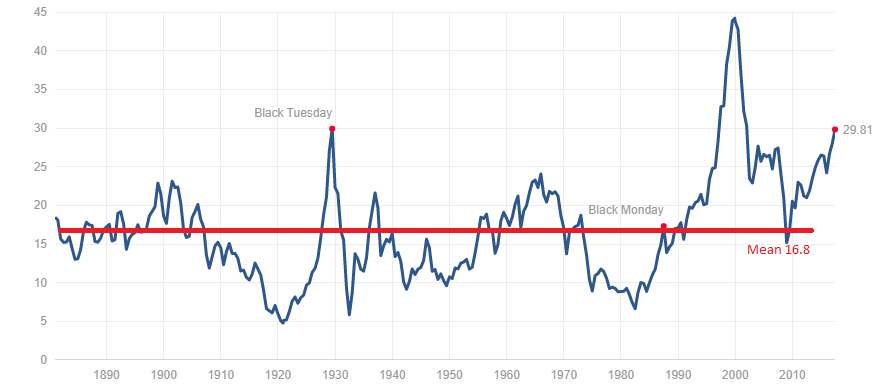The Mental Health Crisis In Ghana: Insufficient Psychiatrists And The Need For Action

Table of Contents
The Stark Reality: Insufficient Psychiatrists in Ghana
The inadequate number of psychiatrists in Ghana is a major driver of the mental health crisis. This shortage severely limits access to vital mental health services, leaving many untreated and exacerbating existing challenges.
The Current Psychiatrist-to-Population Ratio
Ghana's psychiatrist-to-population ratio is alarmingly low compared to international standards. While the World Health Organization (WHO) recommends a minimum ratio of one psychiatrist per 10,000 people, Ghana falls far short. Precise figures vary depending on the source, but estimates consistently reveal a significant deficit.
- Several studies indicate a ratio of less than one psychiatrist per 100,000 people, highlighting the immense disparity.
- This extreme shortage puts an unbearable strain on existing psychiatrists, leading to long wait times, limited appointment availability, and burnout amongst professionals.
- Geographical inequalities are stark; urban areas tend to have slightly better access than rural communities, leaving those in remote regions particularly vulnerable and marginalized in accessing vital mental healthcare. This creates significant health disparities across the nation.
The Impact of Insufficient Psychiatrists
The consequences of insufficient psychiatrists in Ghana are far-reaching and devastating.
- Delayed diagnosis and treatment: The lack of psychiatrists leads to delayed or missed diagnoses, allowing mental illnesses to progress and worsen, increasing the severity of symptoms and the difficulty of treatment.
- Increased suicide rates and self-harm: Untreated mental illness is a major risk factor for suicide and self-harm. The scarcity of mental health professionals contributes to higher rates of these tragic outcomes.
- Higher rates of untreated mental illness: Many individuals with mental health conditions in Ghana remain untreated, leading to chronic conditions, disability, and reduced quality of life. This contributes to a cycle of suffering and further marginalization.
- Increased burden on family members and caregivers: Family members often bear the brunt of caring for individuals with untreated mental illness, leading to significant emotional and financial strain. Without adequate professional support, the burden on families becomes unsustainable.
- Impact on economic productivity: Mental illness significantly impacts an individual's ability to work and contribute to the economy. Untreated mental health issues contribute to reduced productivity and lost economic potential for the nation as a whole.
Contributing Factors to the Mental Health Crisis in Ghana
The mental health crisis in Ghana is a complex issue stemming from a multitude of interconnected factors.
Limited Resources and Funding
Inadequate funding for mental healthcare is a significant barrier.
- The national budget allocates insufficient funds to mental health infrastructure, including hospitals and community-based mental health centers.
- Funding for training and retaining psychiatrists is severely limited, hindering the development of a robust mental health workforce. Lack of competitive salaries and poor working conditions contribute to a brain drain of mental health professionals seeking opportunities abroad.
- Access to essential medications and therapies is restricted due to limited resources. This further compromises the quality of care provided.
Stigma and Social Barriers
Pervasive stigma surrounding mental illness acts as a major obstacle to seeking help.
- Traditional cultural beliefs and misconceptions about mental illness often lead to shame and secrecy, preventing individuals from disclosing their struggles. This often results in individuals suffering in silence without seeking appropriate care.
- Fear of discrimination and social exclusion discourages many from seeking professional help. The stigma prevents people from openly discussing their struggles, leading to isolation and further deterioration of their mental health.
- A lack of awareness and education about mental health issues fuels the stigma and prevents individuals from understanding the importance of seeking support.
Lack of Trained Mental Health Professionals
Ghana needs a broader range of mental health professionals beyond psychiatrists.
- A multidisciplinary approach to mental healthcare, including psychologists, counselors, and social workers, is crucial for providing comprehensive and effective care.
- Investment in training programs for these professionals is needed to build a stronger mental health workforce capable of addressing the diverse needs of the population.
- The development of community-based mental health services is essential to make care more accessible and culturally appropriate.
Potential Solutions and Calls for Action to Tackle the Mental Health Crisis in Ghana
Overcoming the mental health crisis in Ghana requires a multifaceted, collaborative approach.
Increased Investment in Mental Healthcare
Significant increases in government funding and international aid are essential.
- The development of a comprehensive national mental health policy is a crucial first step towards a more strategic and coordinated response.
- Increased funding for training programs is needed to attract and retain psychiatrists and other mental health professionals, including competitive salaries and improved working conditions.
- Investment in infrastructure and technology is needed to improve access to mental healthcare, including telehealth options for remote areas.
Addressing Stigma Through Public Awareness Campaigns
Public education is vital to changing attitudes and promoting help-seeking behavior.
- Collaboration with community leaders, religious organizations, and traditional healers is essential to address culturally sensitive aspects of mental health.
- Strategic use of social media and traditional media platforms can raise awareness and promote mental health literacy.
- Implementing mental health education programs in schools and communities from a young age is vital in challenging stigma and promoting early intervention.
Strengthening Community-Based Mental Healthcare
Community-based services are key to providing accessible and culturally appropriate care.
- Training community health workers to identify and refer individuals with mental health issues can enhance early identification and access to care.
- Establishing mental health clinics in underserved areas ensures that healthcare is geographically accessible.
- Integrating mental healthcare into primary care services improves access for those who may not otherwise seek specialized mental health care.
Conclusion
The mental health crisis in Ghana, amplified by insufficient psychiatrists and systemic challenges, demands urgent and sustained action. Addressing this critical issue requires a multi-pronged strategy involving increased funding, the reduction of stigma through targeted public awareness campaigns, and the strengthening of community-based mental healthcare services. Only through sustained investment and collaborative efforts can Ghana overcome this significant public health challenge and ensure that all its citizens have access to the quality mental healthcare they deserve. Let's work together to address the mental health crisis in Ghana and build a healthier and more equitable future for all Ghanaians.

Featured Posts
-
 Nrc Suspends Warri Itakpe Rail Operations Due To Engine Failure
May 02, 2025
Nrc Suspends Warri Itakpe Rail Operations Due To Engine Failure
May 02, 2025 -
 City Of Tulsa Deploys 66 Salt Trucks For Winter Weather
May 02, 2025
City Of Tulsa Deploys 66 Salt Trucks For Winter Weather
May 02, 2025 -
 South Koreas Housing Culture A New Exhibition Explores Unique Designs
May 02, 2025
South Koreas Housing Culture A New Exhibition Explores Unique Designs
May 02, 2025 -
 Bof As Reassurance Why Current Stock Market Valuations Shouldnt Worry Investors
May 02, 2025
Bof As Reassurance Why Current Stock Market Valuations Shouldnt Worry Investors
May 02, 2025 -
 Latest Fortnite Leak Lara Crofts Imminent Return Confirmed
May 02, 2025
Latest Fortnite Leak Lara Crofts Imminent Return Confirmed
May 02, 2025
Latest Posts
-
 Gaza Freedom Flotilla Sos Drone Attack Reported Off Malta Coast
May 03, 2025
Gaza Freedom Flotilla Sos Drone Attack Reported Off Malta Coast
May 03, 2025 -
 Graeme Souness On Arsenal And A Top Champions League Contender Off The Charts
May 03, 2025
Graeme Souness On Arsenal And A Top Champions League Contender Off The Charts
May 03, 2025 -
 Sky Bet Every Minute Matters Barrow Afc Fans Cycling Challenge
May 03, 2025
Sky Bet Every Minute Matters Barrow Afc Fans Cycling Challenge
May 03, 2025 -
 Arsenals Champions League Challenge Souness Highlights A Formidable Opponent
May 03, 2025
Arsenals Champions League Challenge Souness Highlights A Formidable Opponent
May 03, 2025 -
 Barrow Afc Supporters Sky Bet Every Minute Matters Cycle Relay
May 03, 2025
Barrow Afc Supporters Sky Bet Every Minute Matters Cycle Relay
May 03, 2025
